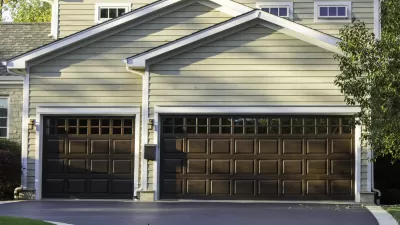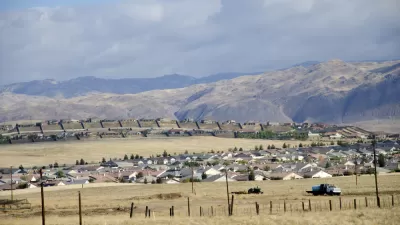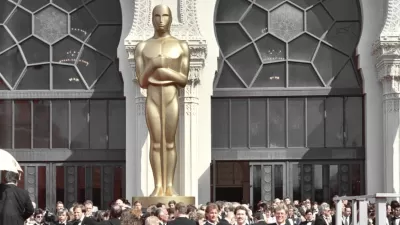According to this opinion piece, planners must ease up on "big bang" planning--an approach centered around sweeping changes with fixed ideas of what the outcome must look like.
"But I wonder, why don't we look at our own cities with the same open eyes as we look at places like Mumbai or Medellín; searching not for failure and horror, but for potential? Is the unplanned city only valid if it's dense and dirty? Why don't we see our cities as legitimate landscapes from which we can build our future?
"The closest we seem to get to that possibility is in the form of ideas that might be called Big Bang Lite – where the ideal is reformation rather than complete reconstruction. In the case of suburbia the need for reform is justified by the need for sustainability. Fair enough. Yet the impression is that sustainability is being used as an excuse to invoke the ideals of Big Bang urbanism - the final picture is pre-determined, comprehensive, inflexible. When I see projects of this type, whether they are set out by New Urbanists hoping to bring urban densities to the suburbs, or whether they are offered up by those brave few who concede suburbia may be a creation of people who actually LIKE where they live, I cannot help but feel we are missing two important points.
First of all, that sustainability does not require density."
"The second point requires a little populist faith, but starts with the assumption that our cities are reflections of the people who live in them."
FULL STORY: Archinect Op-Ed: Big Bangs, Slums, and Suburbia

Planetizen Federal Action Tracker
A weekly monitor of how Trump’s orders and actions are impacting planners and planning in America.

Maui's Vacation Rental Debate Turns Ugly
Verbal attacks, misinformation campaigns and fistfights plague a high-stakes debate to convert thousands of vacation rentals into long-term housing.

San Francisco Suspends Traffic Calming Amidst Record Deaths
Citing “a challenging fiscal landscape,” the city will cease the program on the heels of 42 traffic deaths, including 24 pedestrians.

Defunct Pittsburgh Power Plant to Become Residential Tower
A decommissioned steam heat plant will be redeveloped into almost 100 affordable housing units.

Trump Prompts Restructuring of Transportation Research Board in “Unprecedented Overreach”
The TRB has eliminated more than half of its committees including those focused on climate, equity, and cities.

Amtrak Rolls Out New Orleans to Alabama “Mardi Gras” Train
The new service will operate morning and evening departures between Mobile and New Orleans.
Urban Design for Planners 1: Software Tools
This six-course series explores essential urban design concepts using open source software and equips planners with the tools they need to participate fully in the urban design process.
Planning for Universal Design
Learn the tools for implementing Universal Design in planning regulations.
Heyer Gruel & Associates PA
JM Goldson LLC
Custer County Colorado
City of Camden Redevelopment Agency
City of Astoria
Transportation Research & Education Center (TREC) at Portland State University
Jefferson Parish Government
Camden Redevelopment Agency
City of Claremont





























